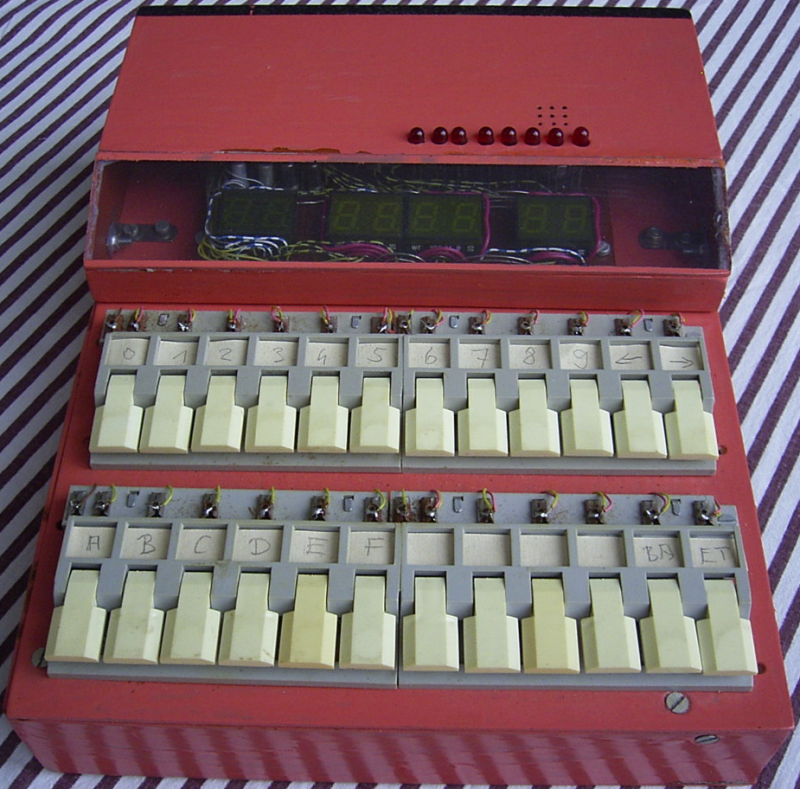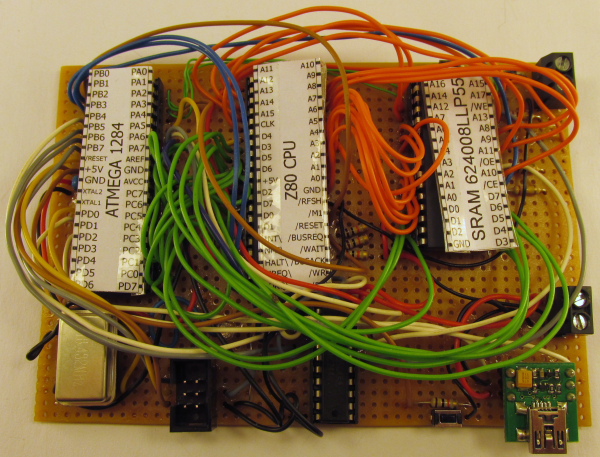

German Ronald Daleske has some interesting CP/M stuff with schematics etc.
First a 1988 home made Z80 computer, a minimalist CP/M board with 3 ICs and also a simple Bare Metal emulator for Raspberry Pi (without OS). The latter one is based on a huge software from ultibo, but I think it’s only needed for making that emulator not for running it.
What a lovely machine!
What I’m missing so far with these CP/M-Z80 plus other microcontroller builds (Z80-MBC(1|2), …) is being able to update them without needing a SDK for the µC on a PC.
Collapse-OS seems to have an assembler for Atmega and siblings and some other µCs, so if such were available on CP/M too, one Z80MBC could build the firmware for a next sibling without ever needing a PC again (if having an assembler would be enough, which is the next hurdle).
Am I the only one dreaming of a PC-free (CP/M-)digitope?
CP/M existed before the PC - systems were typically self hosting and there was a plethora of languages available - many text editors, assemblers, and high level things like Pascal, BASIC, C, FORTRAN and COBOL.
And these still exist today.
Some people use microcontrollers to save logic when building retro systems - the bulk of the system is “proper retro” but the microcontroller saves a lot of tedium like making a disk controller, video, and so on. My own retro 6502 as 65816 systems use an ATmega which helps the bootstrap processor then runs the filing system and serial line when the CPU is booted. If I hadn’t used one then I’d have had to design something with a raft of TTL and other chips - which would have taken longer to design, build and test, but by using the ATmega I was right into 6502 land in hours rather than months…
-Gordon
And most SDK needs Windows. Has some pro and cons. Often you can exchange data. And it’s often easy to use.
The most popular SDK for Microcontrollers (which is what I think we’re talking about here) is the Arduino one - it’s written in Java and runs equally badly on Windows, Mac or Linux.
It’s also very possible to program microcontrollers outside an IDE environment, (I do it on my systems) however the crux is usually C/C++ and most C compilers are too big these days to run on something like e.g. a CP/M system.
-Gordon
Ya but can it play doom? ![]()
In all seriousness that is a pretty lovely minimal machine.
You can still find the older C compilers for 8080 and Z80 if you dig on the web,
Self compile systems seem to be the rare, as you had timeshared PDP-10 or
a IBM-360 to develop code and debug on.
The CP/M emulator source (he also published a PC Lazarus project) is quite interesting and a nice piece of coding in Lazarus/Ultibo!
It was very inspirational for my KIM-1 simulator, I borrowed the console part and expanded it.
Only thing to watch out for and change: the low level keyboard handler is written for a German keyboard.